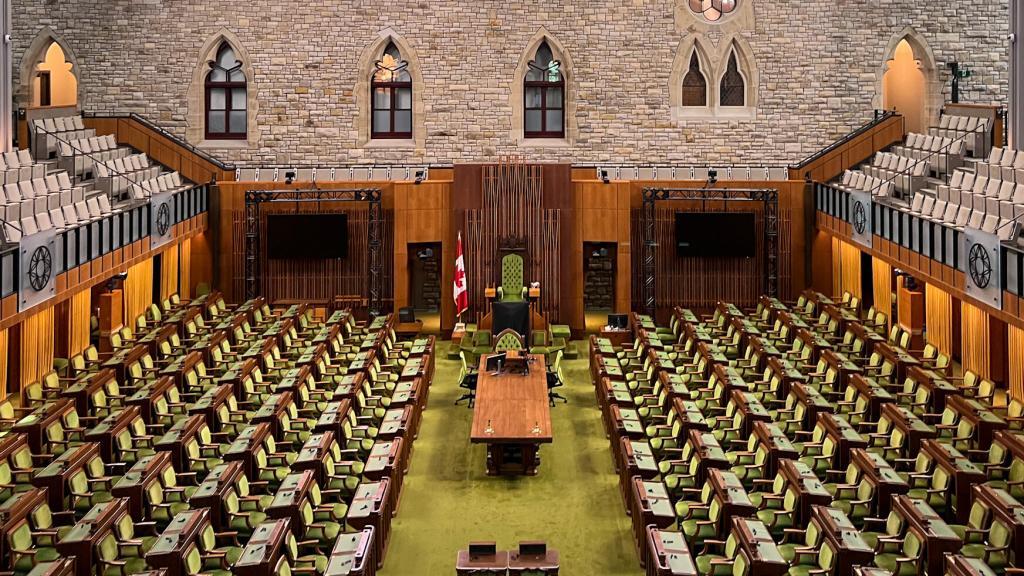
Budget 2023 further integrates nuclear power into Canada’s clean energy strategy
Through the announcement of Federal Budget 2023, the Government of Canada has indicated its clear and strong support for nuclear power playing an indispensable role in the country’s clean energy transition while ensuring domestic energy security.
In addition to being included in the clean energy investment tax credit, nuclear has been made eligible for a range of other tax incentives, further leveling the playing field for clean energy technologies, and enabling nuclear to compete fairly with other non-emitting sources of power.
“Today’s budget represents a significant change in how the Federal government is approaching nuclear power in Canada,” said John Gorman, President and CEO of the Canadian Nuclear Association. “No longer are we simply ‘on the table’ as Prime Minister Trudeau put it one year ago; nuclear is now recognized as a fundamental and necessary component of Canada’s low carbon energy system.”
A new 15% refundable Investment Tax Credit (ITC) for Clean Electricity was introduced that can be applied to all sizes of nuclear power, including small modular reactors (SMRs), large builds, and new refurbishment projects. This ITC will be available to both public and privately owned entities, a decision made in response to a concern raised by the CNA repeatedly over the last few months regarding the applicability of tax credits to crown corporations. This tax credit will also be available for equipment enabling the transmission of electricity between provinces and territories.
This ITCE is separate from the Clean Technology Investment Tax Credit introduced by Minister Freeland in the 2022 Federal Budget and further detailed in the 2022 Fall Economic Statement. The Clean Technology ITC will provide a tax credit of up to 30% for non-emitting electricity generation technologies, including SMRs.
Today’s budget has also announced an 30% Investment Tax Credit for Clean Technology Manufacturing for manufacturing of clean technologies and the extraction, processing, or recycling of critical minerals. This new credit includes manufacturing of nuclear energy equipment and processing or recycling of nuclear fuels.
Nuclear power is also being supported through:
- Extension of the Reduced Tax Rate for Zero-Emission Technology Manufacturers to include the nuclear power sector, including fuel reprocessing and heavy water treatment
- An additional $20 billion being granted to Canada Infrastructure Bank for accelerating the energy transition, including up to $10 billion in clean power, and a further $10 billion in green infrastructure
- Increased budget of $1.3 billion to increase efficiencies with regulatory reviews and approvals, including for the Canadian Nuclear Safety Commission, Impact Assessment Agency, and others
- The Canada Growth Fund will partner with the Public Sector Pension Investment Board, enabling it to attract private capital to Canada’s clean economy
- Providing $500 million over ten years to the Strategic Innovation Fund, which has supported SMR projects in the past, including by Moltex, Westinghouse, and Terrestrial Energy
In addition, the budget provides support for a broad range of initiatives aimed at accelerating Canada’s clean energy transition, particularly through electrification of those sectors that are currently reliant on fossil fuels, including transportation, buildings, and industry, and the production of hydrogen.
Today’s budget follows a series of joint statements over the last week that recognized and promoted the key role of nuclear in the global energy transition. In their joint statement released last week, Prime Minister Justin Trudeau and US President Joe Biden highlighted the need to accelerate cooperation on critical clean energy opportunities and supply chains, including advanced and conventional nuclear energy. This was followed by a joint statement by the Natural Resources Canada and the US Department of Energy, which provided more details on potential areas of coordination and cooperation.
Today’s budget reinforces these statements by specifying policies that will enable and foster such cross-border cooperation, moving us from a paradigm of competition toward an integrated and mutually-beneficial North American nuclear ecosystem.
The Canadian nuclear industry is encouraged by the Government’s commitment to nuclear playing an increasingly significant role in the country’s energy mix. While additional steps must be taken to ensure that all clean energy technologies receive equal and fair treatment, today’s budget is a significant step to ensuring that Canada remain a global leader in the advancement of this critically important clean energy technology.



